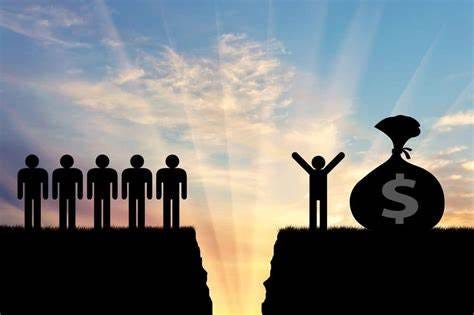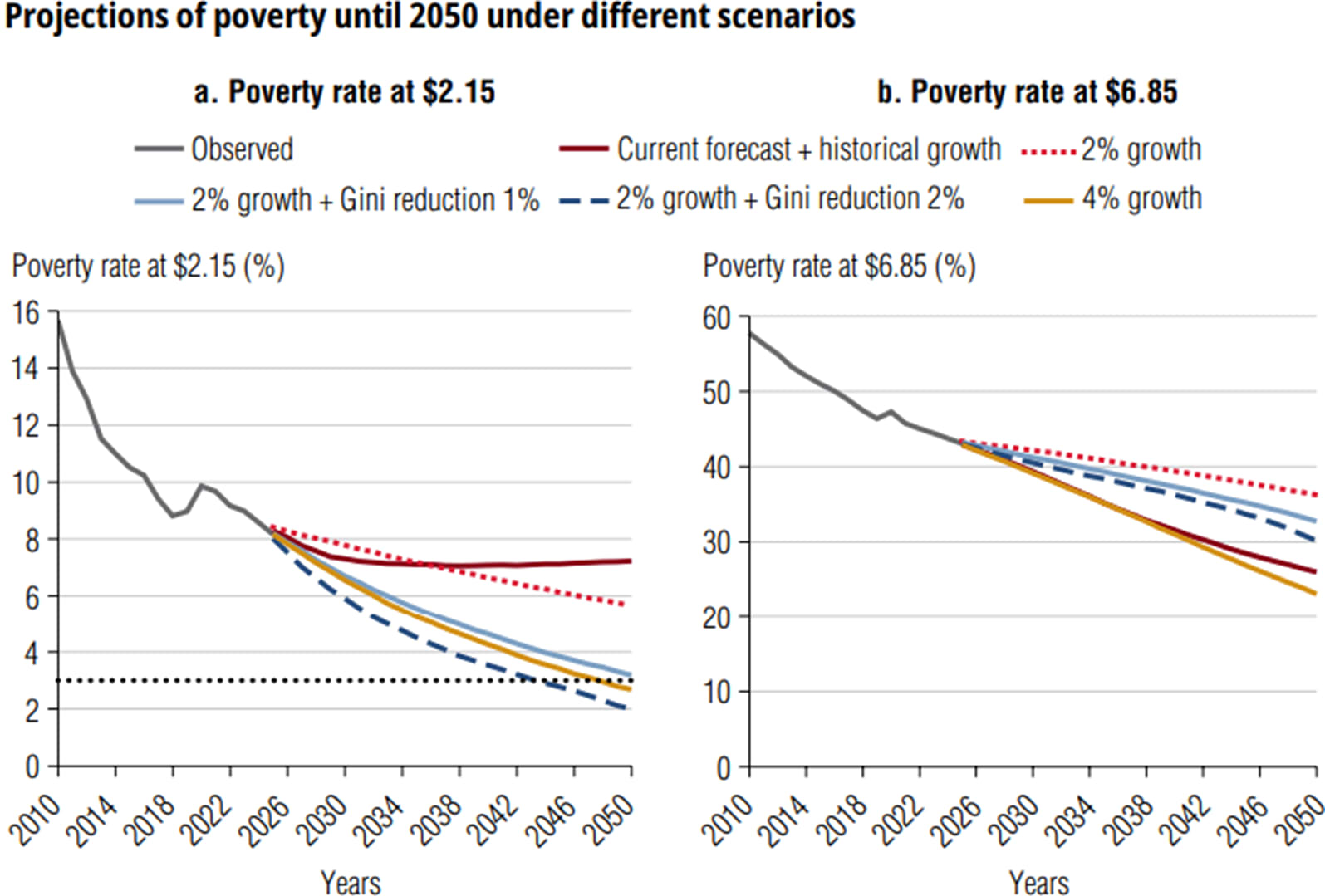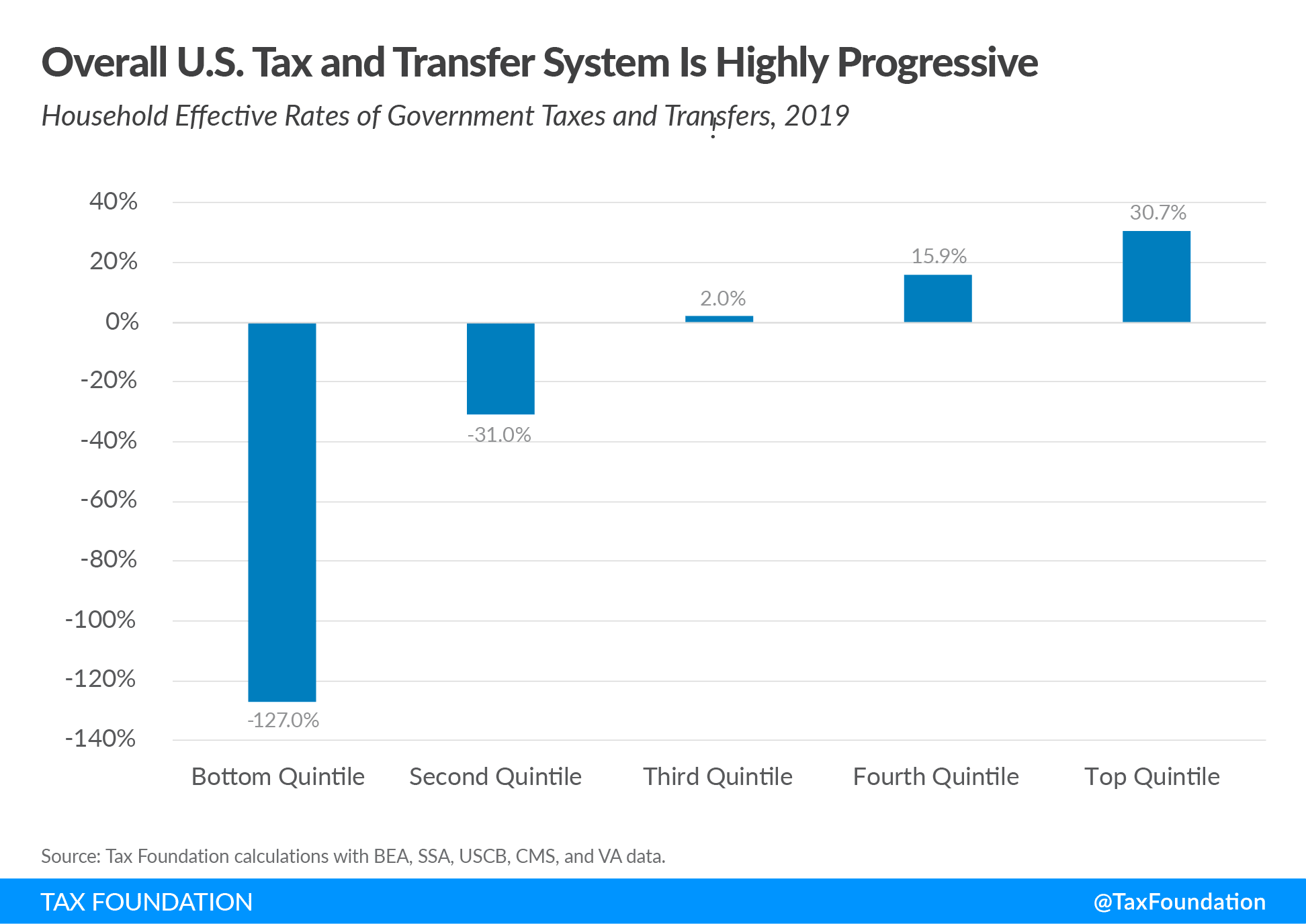This is a crosspost for Rich and Poor: How Things Work by Michael Huemer, which was originally published on Fake Noûs on 18 January 2025.

Here, I explain how leftists misunderstand the economy.
1. The Leftist Theory of Economics
Everyone can see the great inequality in capitalist societies between the rich and the poor. (Most people are actually in the middle class, but we often still think of society in terms of “rich and poor”.) But the left and the right have very different understandings of what is going on — where wealth is coming from, why some are so much richer than others, and what these two groups are like.
The following are simplified stereotypes, but they’re still interesting to contemplate. The simplified stereotype leftist view:
- Where wealth comes from: It is created by “workers”. It is not created by capitalists or managers; those people are just shuffling papers around, not actually making anything.
- How rich people get rich: Wealth is produced by poor workers, but our social system is designed to divert most of that wealth to a small number of unproductive people, the capitalists. The capitalists have lucked into having socially-recognized rights to control the stuff (capital) that other people need to use to produce things of value, so they get to collect rents on that stuff without contributing any value.
- Poor people are poor because of bad luck. They happened to be born into the lower social class, and from there, it’s almost impossible to move up.
- Descriptive Egalitarianism: Everyone is intrinsically more or less equal in ability. The reason the poor can’t move up is just that society won’t let them. Rich kids develop their abilities, while poor kids don’t, because the rich kids’ parents pay to give their kids a good education and upbringing.
- What these groups are like: Rich people are by and large greedy bastards. So much so that if you hear about a CEO being murdered on the street, perhaps you should celebrate the murderer. Poor people are mainly virtuous victims of society.
- There is a “fair pay rate” for any job. This has to do with how much work the job involves and how important that job is to society. For instance, teaching is really important to society, so teachers should get paid a lot. Our society is grossly unjust because actual pay rates diverge widely from the fair pay rates.
- In sum, rich people are basically like parasites living off the backs of the poor.
Note that #1-5 are all descriptive, factual claims.
2. The Rightist View
The simplified stereotype rightist view:
- Where wealth comes from: All or nearly all jobs are helping to create wealth. Workers, capitalists, company managers, etc., are all creating wealth.
- How people get rich: They are paid roughly in proportion to how much value they each create, i.e., their marginal product. If you have a billion dollars, then (barring actual crime) you probably increased total productivity by about a billion dollars.
- Poor people are mostly poor due to low productivity, which is usually due to either a shortage of useful talents, or a shortage of motivation and industriousness. With talent and hard work, almost anyone can succeed.
- There are important differences between people that are not due to society. Some people are just innately more talented than others. Also, some people just make better free choices than others, for which they themselves (not society) are responsible.
- Rich people are mostly normal people, only more talented and ambitious than average. Poor people tend to be less talented (at economically useful things) and/or less ambitious or industrious than average.
- The fair pay for any job is the mutually agreed upon price, in a free market. Or the fair pay is determined your marginal productivity, or by supply and demand. For instance, there are a lot more people who can operate a machine in a clothing factory than there are people who can competently manage the company; also, a manager makes a bigger difference to total productivity than an individual worker. Hence, the manager would and should get paid more.
- Rich people are carrying society on their shoulders like Atlas (see Atlas Shrugged); poor people are a drain on society, whom the rest of us have to carry along.

Note again that #1-5 are all descriptive theses. There’s an empirical fact about which version of #1-5 is more accurate, the leftist or the rightist.
3. Who’s Right?
Basically, the right is right and the left is wrong.
There is a lot more to productivity than physical labor. Take a company that produces cellphones. It is not only the people physically assembling the phones who are being productive. There are the engineers who design the phone, the people who create the company itself, the people who decide what the company should be trying to sell where, the people who save money and invest it in a startup so that the company can start operating, the people who evaluate loan applications from the company, and so on. All that “pushing paper around” has to be done, or no product appears, so that is all productive activity.
It’s not like the workers in the factory were just going to make phones on their own, and they just had to pay these paper pushers to let them. No, the workers, just on their own, were not going to make anything.
- It’s totally plausible that the capitalists and other paper-pushers are vastly more productive than the workers — not as a class, but individually. I.e., subtracting one capitalist from the economy decreases total productivity by more than subtracting one worker, because the capitalist modifies the behavior of many other people in a beneficial way. If I can make 1000 workers be 1% more productive, then I am ten times more productive than a single worker.
- Empirically, there is plenty of income mobility in America. Leftists have simply never bothered to check the empirical facts. E.g., one Treasury Dept report found that over 9 years, 58% of people who started in the bottom quintile of income had moved up to a higher quintile. Most millionaires got their money from consistent saving over time, not inheritance. For more data, see Progressive Myths, ch. 16.
Studies have found a correlation between parents’ income and childrens’ income in adulthood, but they have also found that this is nearly all due to genetics, not environment (it goes away for adopted children). (Again, see Progressive Myths.) The idea that everyone could be like the most productive people if only we gave them the right education is pure wishful thinking; there is zero evidence for it.
If there was such an amazing educational technique, don’t you think we’d be using it by now? Imagine the amount of money to be made by the private school that actually took poor people and made them just as talented and productive as rich people. Given the huge increase in expected income, students could get loans for the tuition, which the banks would know would easily be paid back even with a hefty interest rate.
There are plenty of rich leftists, yet none of them are willing to start up this business. Why not? Because all of them know that they would lose their shirts.
People in general are selfish, which includes being greedy. However, it is plausible that rich people are on average more greedy than non-rich people — i.e., they place greater value on money — since this could explain their motivation to do what it takes to become rich.
But there is also a personality dimension of industriousness versus laziness. Industrious people are willing to work hard to get what they want. Lazy people are willing to exert less effort overall. I don’t know any scientific studies of this; this is just based on personal observation of humans. But I bet almost everyone has noticed this.
Btw, if you’re preparing an outraged denial at this point, it may be because you are more focused on how statements make people feel than on how statements relate to reality. No doubt, the idea that poor people are on average “lazier” or “less talented” than rich people hurts people’s feelings. That, however, is completely irrelevant.
If you set aside feelings, the idea is completely natural and plausible. Of course the main reason why someone would have a low income would be that other people are only willing to pay that person a small amount, because that person is only producing a small amount of value for others. And of course the most natural explanation of that would be that the person is either unable or unwilling to produce more value. So it is really extremely commonsensical that low-income people tend to have less (economically valuable) talent or motivation. If this upsets you, then reality upsets you. In which case, you should blame God, not me.
Ex.: Elon Musk works 80-100 hours a week. How many of you would work 80 hours if you already had 400 billion dollars? (How many people would continue to work at all?)
It is possible for someone to be underpaid or overpaid in a market economy, because sometimes people make mistakes. Sometimes, a person’s productivity will go unrecognized; other times, a person will appear more productive than they are. Nevertheless, there is a systematic tendency in a free market economy for people to be paid roughly in proportion to their marginal product (how much they individually contribute to total production). It is in an employer’s interests to do that, since if you systematically underpay, then someone else can poach your best employees and profit from it. If you systematically overpay, you can be outcompeted by businesses that don’t do that.
Many people commit the diamond/water fallacy, the fallacy of thinking that water should be more expensive than diamonds, because water is a necessity of life while diamonds are not. The price of anything (including labor) is determined not by the value of that type of thing as a category, but by the marginal value of the thing, i.e., the value added by an extra bit of it. Given how much water there is on Earth, the value of an extra bit of water is minimal.
Similarly, given how many blue collar workers there are and how many capitalists there are, the marginal value of a capitalist is greater than the marginal value of a worker.
Wealthy people — say, the top 20% of income earners — are paying almost all of the net tax burden. The bottom 40% are consuming much more government resources than they are paying in, and that’s paid for by the top quintile. The poor also commit most of the crime (most poor people are not criminals, but most criminals are poor). It’s hard to avoid the conclusion that the rest of society would be better off without the current poor. On the other hand, the rest of society would be crippled without the rich. First, the government would be financially crippled and could not afford all the social services they’re giving to the poor. Second, so many companies would never have been started and so many products and services wouldn’t exist, and the people now working for those companies would be doing something less productive.
Perhaps you’re thinking, “No, without the poor, there would be no one to work in the factories, so productivity would stop!” I think this is not correct. Let’s say the bottom quintile (20%) of society left. In general, changes in the population have little effect on total productivity. If the population increases by 20% uniformly across all groups (over a long period, so we have time to adjust), this doesn’t mean there will be a big increase in per capita productivity. The new people will mostly just do more of the same, so they’ll have roughly the same average productivity. By the same token, a drop in population of 20% (over a long time period) would also have little impact on per capita productivity. But suppose we add that the drop will be a decline specifically in the least productive members of society, who are costing the state the most money and committing most of the crimes. In that case, the rest of society would plausibly be better off.
Conclusion
The poor should be thanking the rich, not resenting them. The rich are the reason why the poor are getting by at all. Many of the poor are not pulling their own weight, while the wealthy are pulling much more than their weight.
The left-wing view is motivated by sympathy for the worst-off members of society, which is understandable. But it is more important to describe reality accurately than to describe things in a way that seems sympathetic or makes people feel good.





Thank you very much, Vasco! I am glad that you liked my comment. I will try to answer all your questions as good as I can. I haven't replied to long post before so I don't know how to do the cool paragraphs that you do, so sorry if it gets a little confusing.
I updated the link, so it should work now. Thank you for mentioning this!
I didn't find any good data for how much the top quintile funded governement transfers in other countries, but it would have been very interesting to look at. Thank you for the interesting information.
I think one reason for Singapore being closer to Sweden when it comes to social outcomes might be annual working hours per employed person, where Singapore has 2 255 and Sweden has 1 609. I don't know much about the welfare system in Singapore, but I guess it might be less expenses in some areas. Their healthcare system is 5,5 % of GDP for example. The United States has a very ineffective healthcare system that costs much for both individuals and the state.
Per capita national health expenditures: 11,582 USD. 16.6 % of GDP.
Military expenditure: 14 % of GDP.
Per capita national health expenditures: 6438 USD. 10.7 % of GDP.
Military expenditure: 1.3 % of GDP.
There are studies that shows the correlation between income equality and life satisfaction as well.
Growth isn't always good, since growth also increases from bad things. According to the IPBES Nexus Assesment, there are 7 trillion in subsidies for the fossil fuel industry, and damages to nature for 10-25 trillion in unaccounted costs. There are 35 times more resources going to causes that destroy our planet than supports our nature. Instead of growth, it would be possible to use national income, by Thomas Piketty, would be a good global measurement instead of GDP. For example: “If you take 100 billion euros of oil from oil reserves underground or you take 100 billion euros in fish from the ocean, you have 100 billion euros of GDP, but you have zero euros of national income. And if in addition when you burn oil or gas you create global warming and you reduce the durability of life on earth, then if you put a price on the negative impact of these emissions you should have negative national income instead of positive GDP.”
When it comes to growth, the World Bank Group has some projections about growth, inequality and poverty:
I think it is wonderful that you care for the animals as well. I only have numbers (from 2023, I think) for Sweden and United States when it comes to meat consumption and different types of meat consumption. So I think you might be right about less chicken= more seafood instead:
Meat consumption per capita: 102 kg.
Poultry 51 kg. Beef 26 kg. Pork 23 kg.
___________________________
Fish and shellfish consumption: 8,7 kg.
Meat consumption per capita: 77 kg.
Poultry: 23 kg. Beef: 23 kg. Pork 29 kg.
_________________________________
Fish and shellfish consumption: 14 kg.
I think one reason for these numbers are that vegetables and vegetarian food are easily accessible in Sweden, and harder to find in the US.
Thank you for your good example about the dinner! I will try to come up with an example myself based on an Oxfam report: There is a dinner party with 100 people (where one person represents 1 % in the income ladder). One person has as much food as 95 of the other people. Nine of these people are going hungry (extreme poverty) and risk starving to death. Since these people already are in a bad situation, they will not be able to get food for themselves (an article about the mechanisms behind poverty). The people who have most of the food, can share their food so these people won't starve. 99 people at the table gets 16 new plates of food (trillion dollars of all new wealth), while the richest person gets 26 new plates of food. If the richest person is a billionaire, it gets 1.7 million plates of food for each plate of food that the 90 poorest people at the table gets.
Another example is that the 2 781 billionaires in the world owns $14.2 trillion. One million seconds is 11.57 days, one billion seconds is 31.71 years, one trillion seconds is 31,710 years, 14.2 trillion seconds is 450 282 years.
I think your thoughts about cause prioritisation are very interesting, and they have made me talk about animal suffering and effectiveness when I hold a lecture for my students in public health. I have considered donating to animal welfare. I donate money to Happier Lives Institute, since I am volunteering there and they have given me much joy. I donate money to Cool Earth because they address biodiversity, climate change and poverty. I am more of a "systems change" person and I think they address most areas so far, which was our input to the UN.
Thank you again for your interesting reply! I hope that I replied to everything! :)
Kind regards,
Ulf